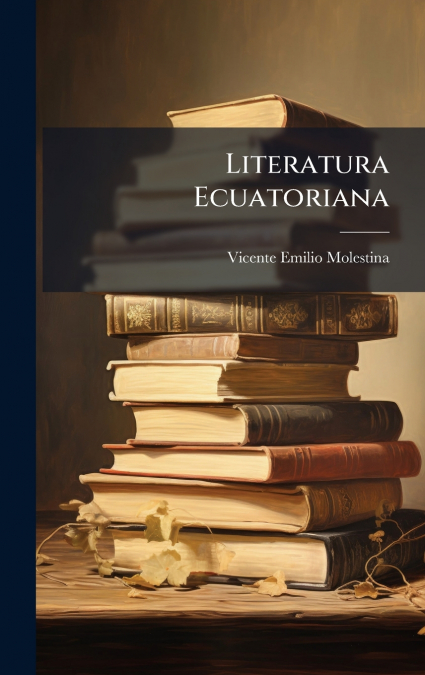
Vicente Emilio Molestina
Literatura Ecuatoriana is a rich collection of literary antiquities, fables, epigrams, satires, and descriptive sketches of national customs, carefully selected and arranged with biographical notes by Vicente Emilio Molestina. This compilation offers a unique window into the literary landscape of 19th-century Ecuador, showcasing the diverse voices and perspectives that shaped the nation’s cultural identity. Featuring a wide array of genres and styles, this anthology provides valuable insights into the social, political, and artistic currents of the time. From witty satires to evocative depictions of everyday life, the works included in Literatura Ecuatoriana capture the essence of a nation in transition. Molestina’s biographical annotations add depth and context, offering readers a glimpse into the lives and works of the writers who contributed to Ecuador’s literary heritage. This collection stands as a testament to the enduring power of literature to reflect and shape the collective memory of a nation.This work has been selected by scholars as being culturally important, and is part of the knowledge base of civilization as we know it. This work was reproduced from the original artifact, and remains as true to the original work as possible. Therefore, you will see the original copyright references, library stamps (as most of these works have been housed in our most important libraries around the world), and other notations in the work.This work is in the public domain in the United States of America, and possibly other nations. Within the United States, you may freely copy and distribute this work, as no entity (individual or corporate) has a copyright on the body of the work.As a reproduction of a historical artifact, this work may contain missing or blurred pages, poor pictures, errant marks, etc. Scholars believe, and we concur, that this work is important enough to be preserved, reproduced, and made generally available to the public. We appreciate your support of the preservation process, and thank you for being an important part of keeping this knowledge alive and relevant.